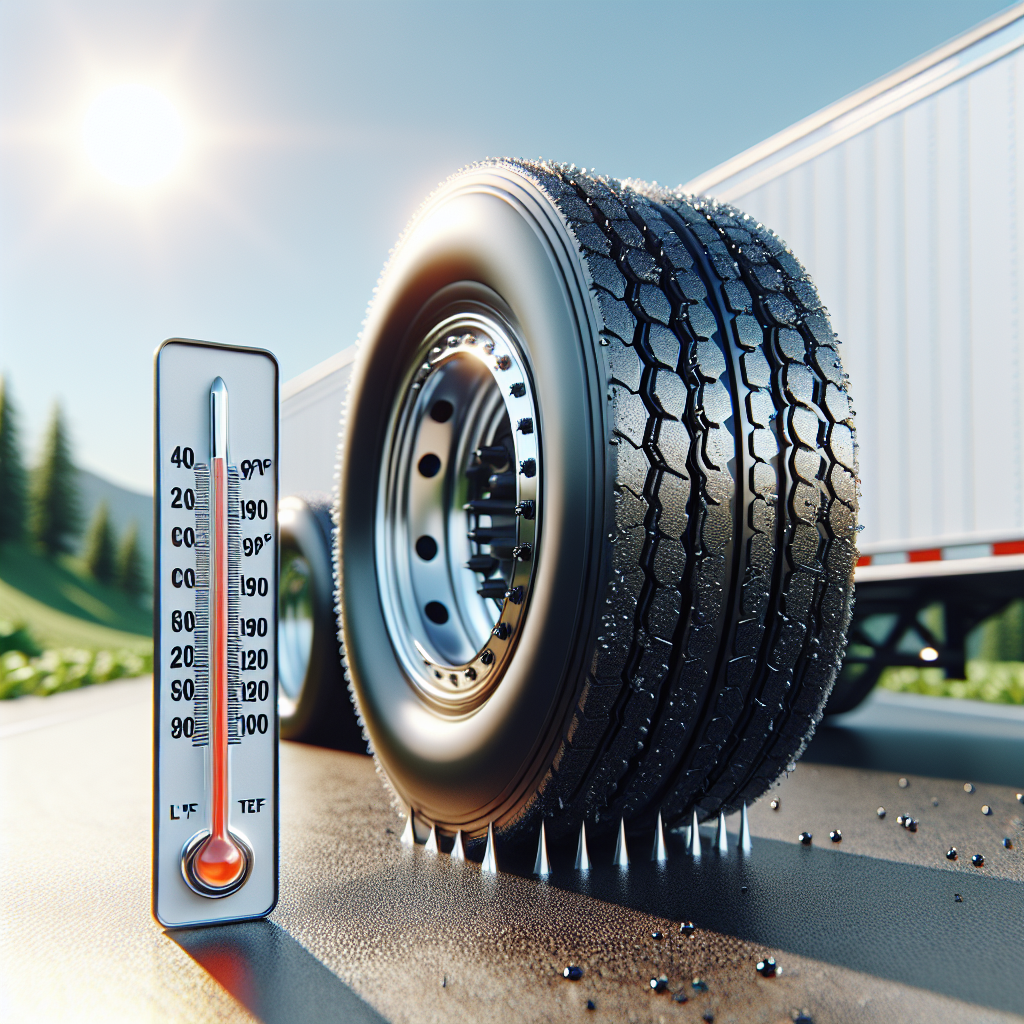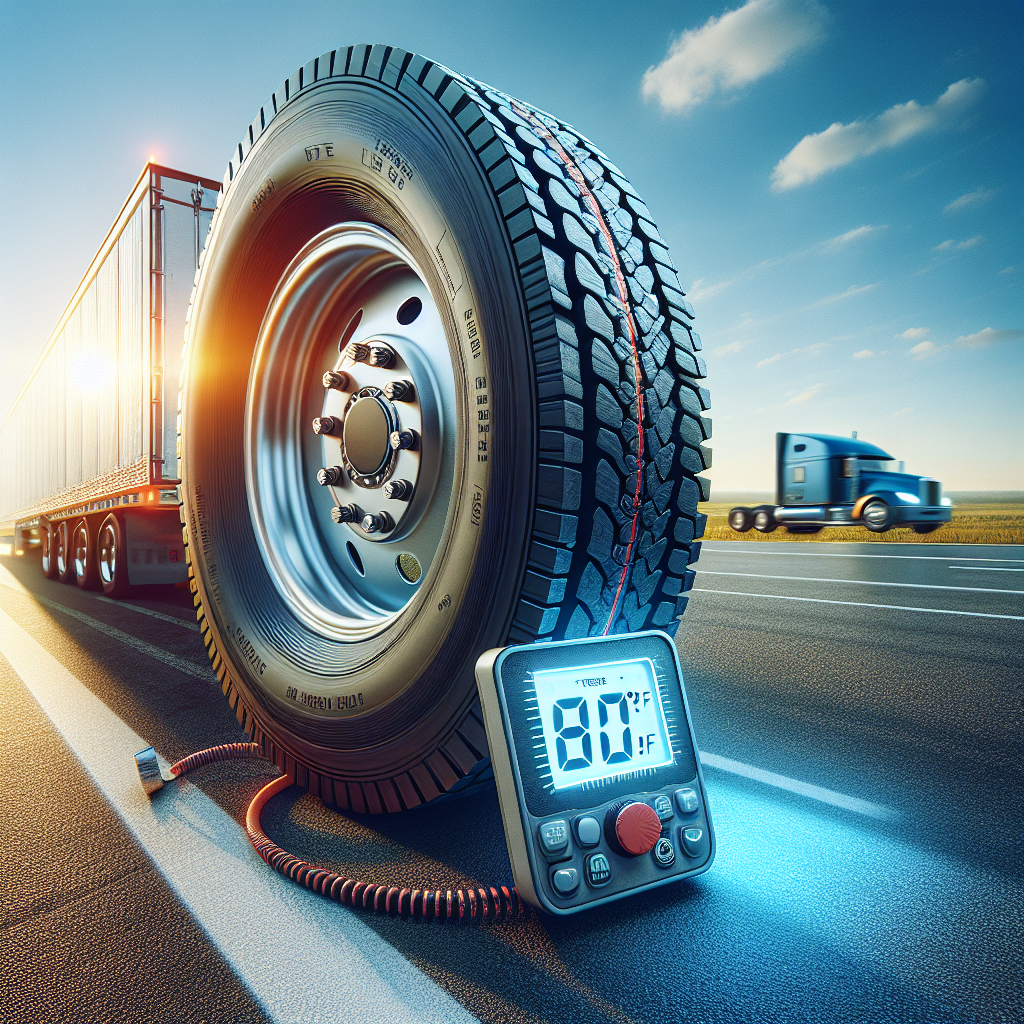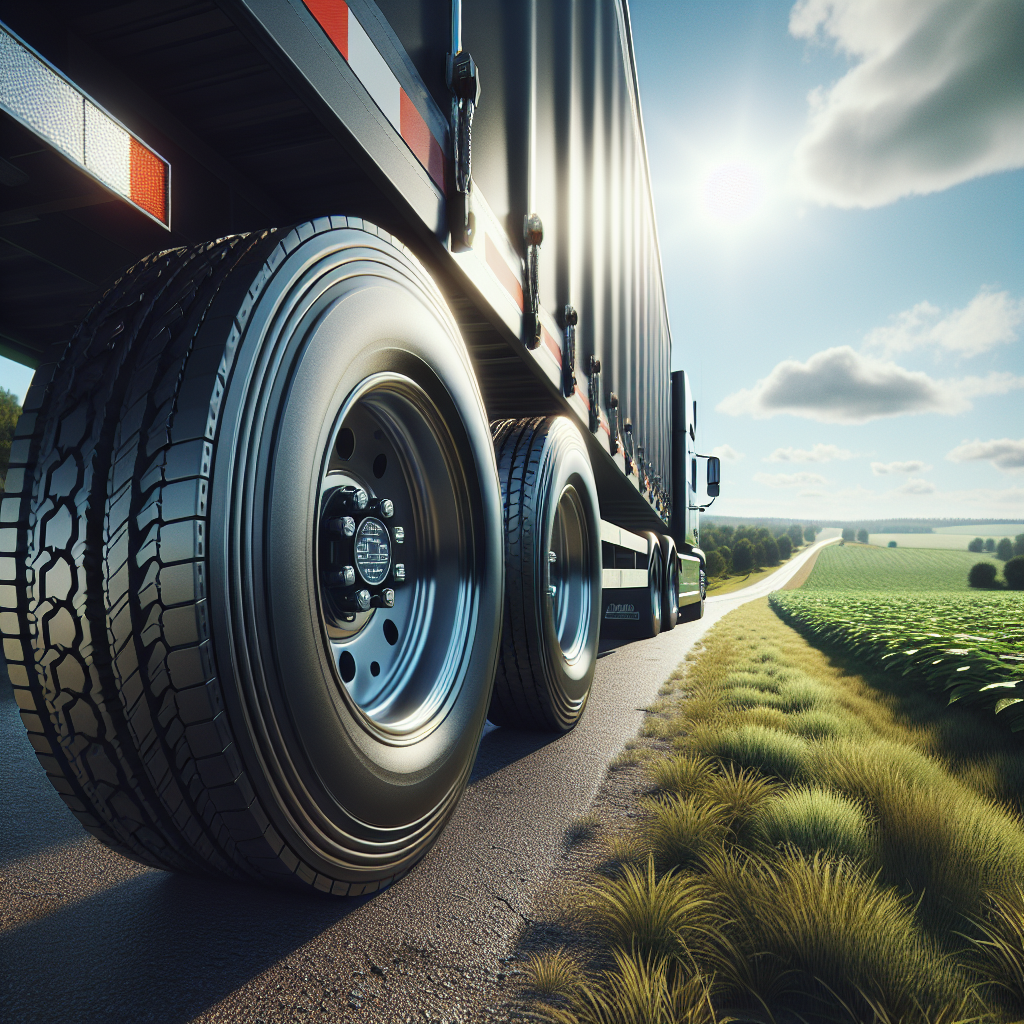Maintaining the ideal safe trailer tire temperature is crucial for ensuring the longevity and performance of your trailer. Understanding what constitutes a safe temperature range helps prevent catastrophic failures, including blowouts and tread separation, which can pose serious safety risks on the road.
Typically, a safe trailer tire temperature should be between 20°F to 30°F above ambient temperature. For instance, if the outside temperature is 70°F, your tire temperature should ideally remain within 90°F to 100°F. However, exceeding this range may indicate potential issues such as:
- Under-inflation: Low air pressure causes excessive friction, leading to higher tire temperatures.
- Overloading: Carrying more weight than recommended increases the stress on tires, raising their temperature.
- Worn-out tires: Aged or damaged tires may not dissipate heat effectively, resulting in higher operating temperatures.
Regular monitoring of tire temperatures can greatly enhance safety and performance. Using a trailer monitoring system, like TrailerWatchdog, allows you to keep track of tire temperature data in real-time, ensuring that you stay within the safe limits. Tow with peace of mind, knowing that trailerwatchdog is standing guard.
Factors Influencing Trailer Tire Temperature
Understanding the factors that influence trailer tire temperature is essential for maintaining optimal performance and safety on the road. Several key elements can affect how hot your tires get, and being aware of these can help you prevent overheating and potential failures.
Here are some critical factors to consider:
- Inflation Pressure: Proper tire inflation is crucial. Under-inflated tires create more friction with the road, leading to increased heat generation. On the other hand, over-inflated tires can result in uneven wear and reduced traction.
- Load Weight: Exceeding the recommended load capacity for your trailer puts additional stress on the tires, causing them to heat up more quickly. Always adhere to load limits to ensure safe operation.
- Driving Conditions: Frequent stop-and-go traffic, steep inclines, or rough terrain can contribute to higher tire temperatures. These conditions require more effort from the tires and can lead to overheating.
- Weather Conditions: Ambient temperatures play a significant role in tire temperature. Hot weather can naturally elevate tire temperatures, while cold weather can have the opposite effect, making it essential to monitor conditions regularly.
- Tire Age and Condition: Worn or aged tires may not perform well under stress, leading to increased heat buildup. Regular inspections can help identify signs of wear that could compromise tire integrity.
By understanding these factors, you can take proactive steps to manage tire temperatures effectively and enhance the safety and reliability of your trailer.
Signs of Overheating Trailer Tires

Recognizing the signs of overheating trailer tires is vital for ensuring the safety and longevity of your trailer. Overheating can lead to catastrophic failures, accidents, and costly repairs. Here are some key indicators that your trailer tires may be overheating:
- Excessive Heat: One of the most apparent signs of overheating is an increase in tire temperature. If you can feel significant heat radiating from your tires, it’s a clear warning sign.
- Visible Damage: Look for signs of physical damage, such as bulges, cracks, or blisters on the tire surface. These can indicate that the tire has been subjected to excessive heat.
- Abnormal Wear Patterns: Uneven or excessive tread wear can signal overheating issues. Inspect your tires for signs of wear that differ from their normal condition.
- Poor Handling: If you notice a decrease in your trailer's handling or stability, particularly when turning or stopping, it may indicate that the tires are not performing correctly due to overheating.
- Frequent Loss of Air Pressure: Overheating can cause tires to lose air pressure more rapidly. If you find yourself frequently checking and inflating your tires, this could be a sign of underlying issues.
Being vigilant about these signs can help you address overheating issues before they escalate, ensuring that your trailer remains safe and efficient on the road.
How to Monitor Trailer Tire Temperature

Monitoring your trailer tire temperature is essential for maintaining optimal performance and preventing overheating. Here are some effective methods to keep an eye on tire temperatures:
- Infrared Thermometer: A handheld infrared thermometer allows you to quickly measure the surface temperature of your tires without direct contact. Simply point the device at the tire and read the temperature to ensure it stays within a safe range.
- Tire Pressure Monitoring Systems (TPMS): These systems not only monitor tire pressure but can also provide real-time temperature readings. TPMS can alert you to any abnormal tire conditions via a dashboard display or mobile app.
- Regular Inspections: Conduct routine visual inspections of your tires. Check for signs of damage, wear, and irregularities that could indicate overheating.
- Scheduled Maintenance: Incorporate tire temperature checks into your regular maintenance schedule. This can include checking temperatures during fuel stops or before long trips to ensure everything is functioning correctly.
- Smart Trailer Technologies: Investing in a smart trailer monitoring system, like those offered by TrailerWatchdog, can provide comprehensive data on tire temperatures and axle health. These systems continuously monitor tire conditions and alert you of any issues, providing peace of mind.
By implementing these monitoring strategies, you can proactively manage tire temperatures and significantly reduce the risk of overheating, ensuring a safer towing experience.
Preventive Measures for Safe Tire Temperature

Maintaining a safe trailer tire temperature is pivotal in preventing tire blowouts and ensuring the longevity of your trailer's tires. Here are some effective preventive measures you can take to keep your tire temperatures in check:
- Regular Tire Checks: Frequently inspect your tires for signs of wear, damage, or any irregularities that could lead to overheating. Look specifically for cracks, bulges, or foreign objects embedded in the tread.
- Proper Inflation: Ensure that your tires are inflated to the manufacturer's recommended pressure. Under-inflated tires generate more heat, while over-inflated tires can lead to poor traction and increased wear.
- Load Management: Be mindful of your trailer's load. Overloading can lead to increased tire temperatures due to added pressure and friction. Always adhere to the weight limits specified by the manufacturer.
- Use Quality Tires: Invest in high-quality tires that are designed for the specific conditions you will be towing in. Higher quality tires often feature better heat resistance and durability.
- Monitor Road Conditions: Be aware of the road conditions you will encounter on your route. Hot asphalt can contribute to increased tire temperatures, so plan your journey accordingly and consider driving at cooler times of the day.
By adopting these preventive measures, you can significantly reduce the risk of tire overheating and ensure a safer, more reliable towing experience.
The Importance of Regular Tire Maintenance

Regular tire maintenance is crucial for ensuring the safety and performance of your trailer. Just like any other component of your vehicle, tires require consistent care to operate effectively. Neglecting this essential maintenance can lead to increased risks, such as tire blowouts or reduced fuel efficiency.
Here are some key aspects that highlight the importance of regular tire maintenance:
- Enhanced Safety: Keeping tires in optimal condition helps prevent unexpected failures on the road, which can lead to dangerous situations.
- Improved Performance: Well-maintained tires provide better traction, handling, and braking, making your towing experience smoother and more controlled.
- Increased Longevity: Regular inspections and maintenance extend the life of your tires, saving you money in the long run and reducing the frequency of replacements.
- Better Fuel Efficiency: Properly inflated and maintained tires contribute to better fuel economy, allowing you to save on fuel costs during long hauls.
Incorporating a routine for tire maintenance into your trailer care regimen is essential for anyone who tows regularly. This includes monitoring tire pressure, checking tread depth, and ensuring proper alignment.
Tow with peace of mind, knowing that trailerwatchdog is standing guard.








